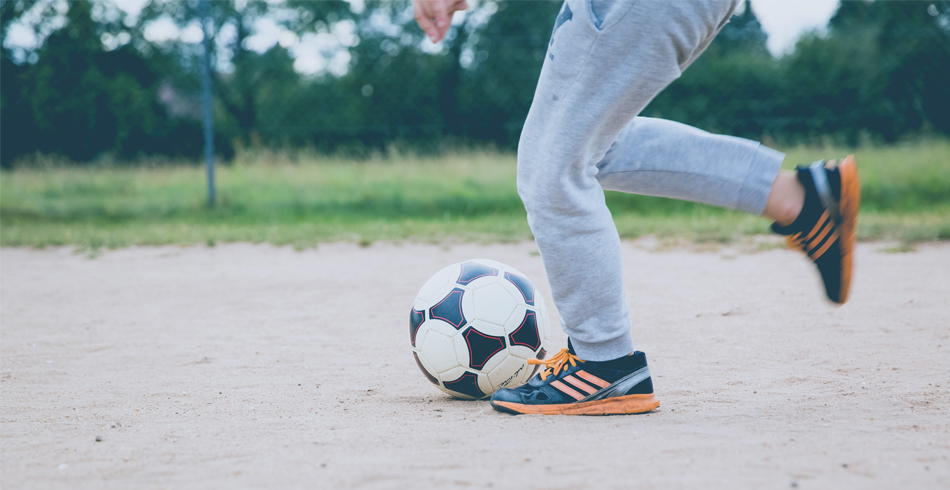Benefits of Recreational sports
Benefits of Recreational sports on Kids
Without a doubt, recreational sports are a great way to introduce children to the basic rules of the game and to start teaching them good sportsmanship skills. It's also a chance to get your children out in the fresh air, play and have fun.
It's important to note that all children profit from recreational sports — not just the potential future pro-athletes. Even if your child has only moderate athletic ability or seems “un-athletic,” a good, positive recreational sports program can be a great way for them to develop their cognitive and physical skills. This development will assist them in all areas in their existence and will construct their self-esteem.

Cognitive development
A child’s cognitive development refers to their ability to think and reason. This development begins in infancy and continues well into adulthood. It includes the ability to solve, communicate, make decisions and reason logically
Learning true sportsmanship is a goal of all youngsters recreational sports activities programs. This isn’t most effective useful in teaching values and morality. It teaches children how to talk with children and adults and the way to work properly with others to perform a commonplace goal. In addition, coaches will often teach the kids simple strategies for plays that allow them to trouble remedy and make decisions.
Motor and coordination skills:
Motor abilities confer with someone’s capability to manipulate their muscle actions easily and exactly. This is something that kids develop at various speeds so that you would possibly see one youngster on the crew who deftly maneuvers the football ball around different gamers, while some other participant journeys over the ball trying to dribble. Developing motor competencies and the capacity to be coordinated takes exercise—some things young people recreational sports are notable for!
Participation in recreational sports will allow your kids to develop their balance, agility, speed and flexibility. Sports teach kids to kick, throw, run, catch and jump. They develop hand-eye coordination when they dribble the basketball, and foot-eye coordination when they dribble a soccer ball. These repetitive activities will help develop your child’s motor skills.
Benefits of Recreational Sports on Adults
As youngsters and teens, lots of us had the revel in taking part in recreational sports leagues such as soccer, cricket, tennis and basketball. Not handiest were they a good place to bond with our friends (and make new ones), they also were given us shifting and helped foster a aggressive – and cooperative – spirit. Yet as adults, a number of people don’t generally tend to consider sports as a possible hobby between work hours and circle of relatives activities, there just doesn’t seem to be enough time within the day. However, recreational sports have more advantages for adults, just as they do for youngsters and teenagers – in fact, adults are probably an awful lot greater in want of the bodily and mental boosts that gambling rec league sports activities can provide.
The physical benefits:
Adults are told by everyone from the media to doctors to family members that being active is important, and they’re correct. Making sure you get in at least half an hour of exercise every day can help you feel more energized, lower your blood pressure, and strengthen your bones and muscles, according to the Heart Foundation of Australia. Not only that, but getting in some physical exercise can go a long way towards stress management, which is vital in this day and age.
Recreational leagues are the perfect solution for anyone who loves the competitive nature and team environment of sports. You’ll get in your regular exercise, plus you’ll be able to have fun doing it – as well as getting out and being social with a bunch of like minded peers. It can be the perfect stress buster at the end of a long work day, as well as good motivation to get out and get moving – even if you don’t want to.
The psychological bonuses:
As mentioned briefly above, it’s not just the physical aspect of recreational sports that can benefit adults – it also comes on the mental and psychological sides. Aside from being a stress reliever, playing a sport as part of a team – whether just for fun or on a competitive level – can do wonders for one’s mental health and self-esteem. An article from the Bennington Banner notes that “though research shows that fitness results vary by individual, there are valid socio-emotional health benefits to participating in group or team athletics, in either a competitive or recreational setting.” The article goes on to discuss how important goal-setting is for adults, as well as the motivation that comes when you feel obligated to show up and be part of a team. Having a scheduled practice, it says, is also good for simply getting people out of the house and being social, which can be a struggle if a person is susceptible to depression, isolating behavior, or loneliness. Being a part of a rec league can potentially give that person the motivation and drive to get out and be around other people, as well as a boost in self-esteem and confidence.
At the heart of it, recreational sports are really about creating a social atmosphere in a friendly, physical environment. If you’re looking to take your recreational sport league team to the next level, you can consider team-building bonuses like group jerseys or t-shirts, special equipment, or even athletic performance trackers to monitor each individual’s progress and identify their metrics. Being able to see your progress via data as you improve at a sport can be an extra motivator to help you stick with it, plus it’s always rewarding to see how well you performed – and you can even set a higher goal for next time.
Recreational Sports injuries occur during exercise or while participating in a sport. Children are particularly at risk for these types of injuries, but adults can get them, too.
You’re at risk for sports injuries if you:
- Haven’t been regularly active
- Don’t warm up properly before exercise
- Play contact sports
Types of Recreational sports injuries
- Sprain
- Strain
- Knee injury
- Achilles tendon rupture
- Fracture
- Dislocation
INJURY Treatment
The RICE method is the common treatment for these type of injury
- R - Rest
- I- Ice
- C- compression
- E- Elevation
